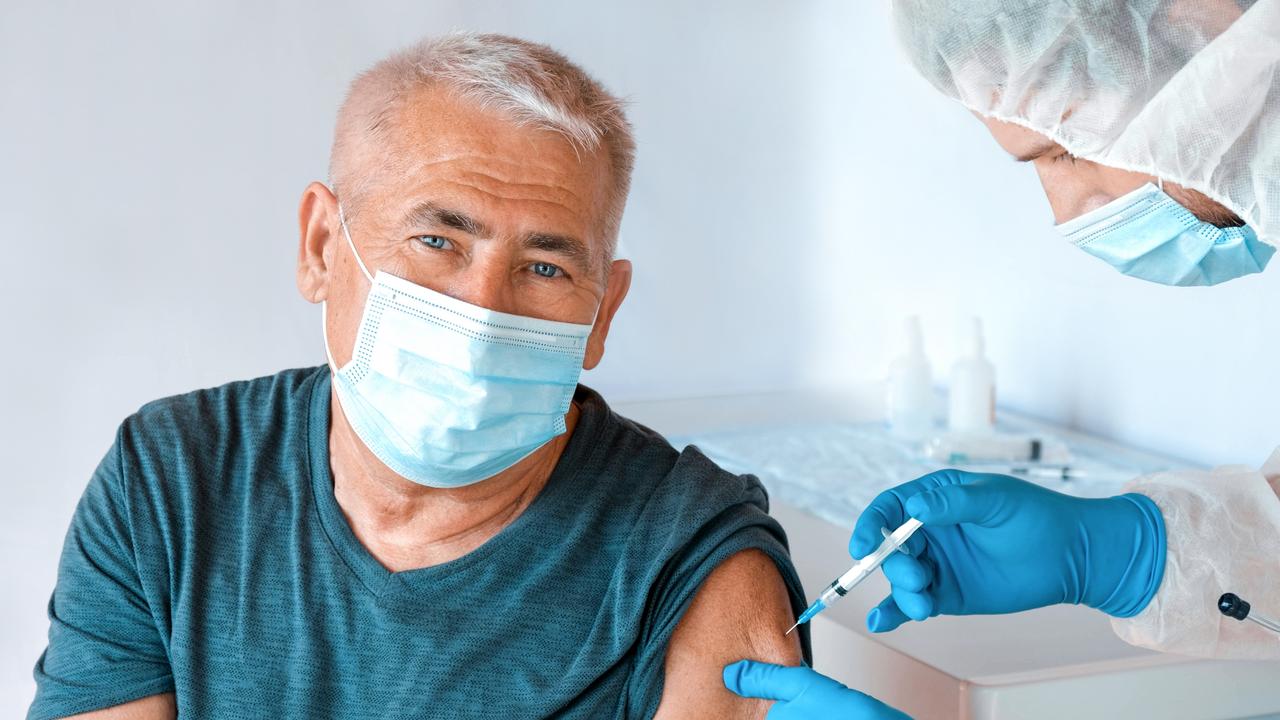Victorian researchers stop antibiotic-resistant superbugs
About 5000 Australians are hospitalised due to antiobiotic-resistant superbugs each year. But this discovery may help.
Conditions
Don't miss out on the headlines from Conditions. Followed categories will be added to My News.
Victorian researchers are improving the treatment of deadly superbugs in a world-first study labelled a “significant” game-changer by clinicians.
Researchers used genomics, the study of bacteria’s genes, to precisely treat patients with dangerous bacterial infections suspected of having traits that made the bug resistant to antibiotics.
These included golden staph that can cause sepsis, pneumonia, bone and joint infections and endocarditis, an infection of the heart valves.
The researchers were the first to show that tracking bacterial changes using genome sequencing during these invasive infections gave doctors immediate information to personalise treatment and improve outcomes.
Lead author of the study published in Nature Communications is University of Melbourne’s Stefano Giulieri, an infectious diseases doctor at the Royal Melbourne Hospital and a researcher at the Peter Doherty Institute for Infection and Immunity (Doherty Institute).

He said genomics helped to find every piece of bacteria’s DNA and this was crucial for understanding the evolution of an infection and targeting it with the right antibiotics.
“It will tell you a huge amount of information; it’s like going from seeing a name on an ID card to seeing 10 pages of a resume,” Dr Giulieri said.
“It is exciting technology that will improve the outcome of severe bacterial infections and help doctors stay one step ahead of the tricks bacteria use to survive.”
Dr Giulieri said that unlike standard hospital laboratory tests that only identify the type of bacteria, genome sequencing shows a complete genetic profile, including traits that influence its response to treatment.
Around 5000 Australians are hospitalised every year because of golden staph sepsis, with 20 per cent dying.

“Mortality is very high compared to other diseases,” Dr Giulieri said, adding that golden staph infections are notoriously difficult to treat because they can adapt and become resistant to even the most potent antibiotics.
The researchers worked with doctors from seven Victorian hospitals to show genomics can help clinicians quickly identify the bacteria and pinpoint the right antibiotics.
Dr Giulieri said the patients in the study had severe and recurring golden staph infections that were not responding to treatment.
The researchers found in a third of patients the bacteria had picked up dangerous mutations that made treatment more likely to fail.
This included one patient where a golden staph infection had initially been controlled, but the patient returned to hospital two months after stopping antibiotics.
“Samples were referred to us for sequencing and we discovered that, during infection, the golden staph bacteria had become 80 times more resistant to the antibiotic used. Each time they reappeared in blood, the bacteria had picked up a new dangerous mutation.”
Dr Giulieri said using this information, the clinical team was able to choose a new treatment and cure the infection.

University of Melbourne’s Professor Benjamin Howden who is director of the Microbiological Diagnostic Unit Public Health Laboratory at the Doherty Institute was senior author of the study.
He said it had significant implications for the future of infectious disease management.
“These findings represent a major step toward targeted therapy for bacterial infections and open the door to future clinical trials that could make this approach standard practice in hospitals worldwide,” Professor Howden said.
Dr Giulieri said the researchers were looking to set up a service soon where this method can be provided to Victorian hospitals.
More Coverage
Originally published as Victorian researchers stop antibiotic-resistant superbugs





